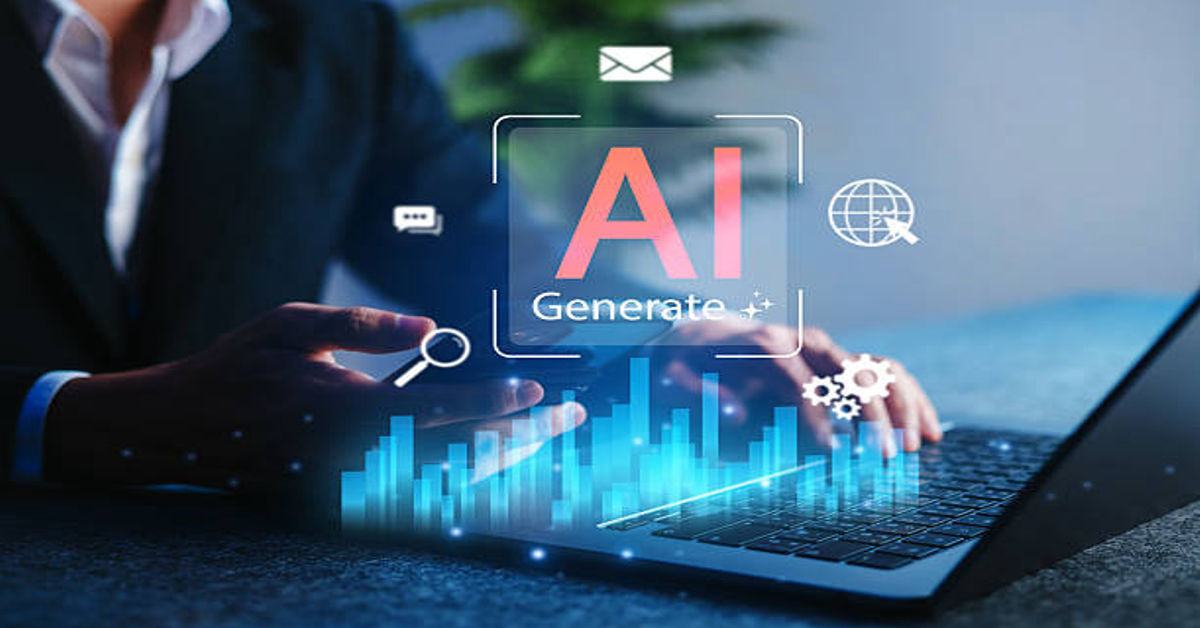
In the constantly evolving digital landscape, search engine optimization (SEO) remains one of the most critical tools for businesses seeking online visibility. However, traditional SEO practices often require time-consuming research, content creation, link building, and analytics monitoring. Artificial intelligence (AI) has emerged as a transformative solution, enabling marketers, content creators, and SEO specialists to optimize websites more efficiently and intelligently. When combined with SEO Gravitate, a platform designed to streamline SEO workflows and improve search engine rankings, AI becomes a potent tool that can drive substantial results. This guide provides a detailed understanding of how to use AI for SEO Gravitate, covering the principles of AI in SEO, practical implementation strategies, content optimization, keyword research, analytics, and performance measurement, along with actionable tables and real-world examples.
Understanding AI in SEO
Artificial intelligence is a branch of computer science that enables machines to mimic human intelligence, including decision-making, problem-solving, and learning from data. In the context of SEO, AI leverages algorithms, natural language processing (NLP), and machine learning to analyze massive amounts of search data, identify trends, predict user behavior, and optimize content for both search engines and users. AI tools can automate repetitive tasks such as keyword research, meta description generation, content optimization, competitor analysis, and backlink monitoring. By using AI for SEO, businesses can not only save time but also gain deeper insights into search trends and user intent, which traditional SEO methods may not reveal.
SEO Gravitate is a platform that focuses on improving website rankings and optimizing content strategy through actionable recommendations. Integrating AI into SEO Gravitate enables users to make data-driven decisions, improve content relevance, and enhance user experience, ultimately boosting organic traffic and conversions.
The Role of AI in SEO Gravitate
SEO Gravitate, when powered by AI, can enhance every aspect of the SEO workflow. Here are the main areas where AI makes a significant impact:
- Keyword Research and Analysis
AI can scan large volumes of search queries, identify high-traffic keywords, and determine search intent. Unlike manual research, which can be tedious and error-prone, AI tools provide insights into long-tail keywords, semantic relevance, and competitive difficulty. - Content Optimization
AI algorithms analyze existing website content and compare it against high-ranking pages to recommend improvements. This includes optimizing headers, keyword density, internal linking, meta descriptions, and readability. - Competitor Analysis
AI-powered platforms can continuously monitor competitors’ websites, detecting content gaps, backlink opportunities, and changes in keyword rankings. SEO Gravitate uses these insights to refine your SEO strategy. - Performance Analytics and Predictive Insights
AI tools track user behavior, CTR (click-through rate), bounce rate, dwell time, and engagement metrics to predict which content strategies are likely to succeed. These insights allow marketers to allocate resources efficiently. - Automation of Repetitive SEO Tasks
From generating meta tags to scheduling content updates, AI can automate tasks that typically require hours of manual effort, freeing teams to focus on strategy and creativity.
Step-by-Step Guide to Using AI for SEO Gravitate
Implementing AI into your SEO Gravitate workflow requires a structured approach. The following step-by-step guide provides a practical roadmap for maximizing results.
Step 1: Define SEO Goals
Before using AI tools, it is essential to define your objectives. SEO goals may include:
- Increasing organic traffic
- Improving search engine rankings for specific keywords
- Enhancing content relevance and readability
- Reducing bounce rates and improving engagement
- Boosting conversions through optimized landing pages
Clearly defined goals allow AI algorithms to provide precise recommendations tailored to your strategy.
Step 2: Conduct AI-Powered Keyword Research
Keyword research is the foundation of SEO. With AI, you can quickly analyze thousands of search queries to identify:
- High-volume keywords
- Low-competition long-tail keywords
- Related semantic keywords
- Seasonal trends and emerging topics
Table 1: Sample Keyword Research Analysis Using AI
| Keyword | Search Volume | Competition Level | CPC | Suggested Use |
|---|---|---|---|---|
| AI SEO tools | 12,000 | Medium | $3.50 | Blog post & landing page |
| SEO automation tips | 8,500 | Low | $2.80 | How-to guide |
| Content optimization AI | 6,000 | High | $4.20 | Detailed tutorial |
| Keyword gap analysis | 4,200 | Low | $2.50 | Case study & infographic |
Using AI-powered suggestions, SEO Gravitate can prioritize keywords based on relevance, competitiveness, and potential ROI.
Step 3: Optimize Website Structure
AI can audit your website to identify structural issues affecting SEO. This includes:
- URL hierarchy optimization
- Internal linking improvements
- Mobile-friendliness assessment
- Site speed and performance analysis
A well-structured website enhances both user experience and search engine crawlability, which is crucial for improving rankings.
Step 4: Create AI-Enhanced Content
High-quality, relevant content remains the most important factor for SEO success. AI can assist content creation in several ways:
- Topic Generation – Suggests trending and relevant topics based on user intent.
- Content Outlines – Generates structured outlines with headings, subheadings, and semantic keywords.
- SEO Recommendations – Advises on keyword placement, meta tags, alt attributes, and readability score.
- Content Expansion – AI can enhance existing content by adding related information, statistics, and examples.
Step 5: Optimize On-Page Elements
AI tools integrated with SEO Gravitate can automatically evaluate and optimize on-page SEO elements such as:
- Title tags
- Meta descriptions
- Header tags (H1, H2, H3)
- Image alt text
- Internal and external links
Correctly optimizing these elements ensures better search engine indexing and higher CTR from search results.
Step 6: Leverage AI for Competitor Analysis
AI enables continuous monitoring of competitors to uncover insights such as:
- Top-performing keywords
- High-quality backlinks
- Content gaps and opportunities
- Social engagement metrics
Table 2: Example Competitor Keyword Gap Analysis
| Competitor | Keywords Ranking | Keywords Missing | Content Opportunities |
|---|---|---|---|
| Competitor A | 1,200 | 350 | Long-tail blog posts |
| Competitor B | 900 | 500 | Case studies & tutorials |
| Competitor C | 1,050 | 250 | Infographics & videos |
By identifying gaps, SEO Gravitate can help you create content that fills unmet user needs and captures traffic competitors are missing.
Step 7: Analyze and Improve Performance
AI provides predictive analytics to track content performance. Key performance indicators include:
- Organic traffic growth
- Bounce rate reduction
- Average time on page
- Conversion rates
- Ranking improvements
Based on AI insights, SEO Gravitate can adjust strategies in real-time, including updating content, revising keywords, and improving technical SEO elements.
Benefits of Using AI for SEO Gravitate
Integrating AI into SEO workflows provides numerous advantages:
- Efficiency and Time Savings – Automates repetitive tasks and accelerates research.
- Data-Driven Decision Making – Uses analytics and predictive modeling for strategic planning.
- Scalability – Handles large volumes of data and multiple campaigns simultaneously.
- Improved Accuracy – Reduces human error in keyword analysis, content recommendations, and ranking predictions.
- Enhanced User Experience – Optimizes content and website structure to meet user intent.
These benefits collectively contribute to better ROI and sustainable SEO growth.
Common AI Tools for SEO Gravitate Integration
While SEO Gravitate provides a platform for SEO management, AI tools can complement its capabilities. Examples include:
| AI Tool | Functionality | Benefit for SEO Gravitate |
|---|---|---|
| AI Keyword Analyzer | Identifies high-value keywords | Faster keyword discovery |
| AI Content Optimizer | Suggests headings, keywords, and readability | Improved content relevance |
| AI Backlink Checker | Evaluates backlinks quality | Better link-building strategy |
| AI Competitor Tracker | Monitors competitor performance | Strategy refinement |
| Predictive Analytics Tool | Forecasts traffic trends | Data-driven decision making |
Selecting appropriate AI tools depends on your objectives, budget, and level of SEO expertise.
Best Practices for Using AI in SEO Gravitate
To maximize the benefits of AI for SEO Gravitate, consider the following best practices:
- Combine AI Insights with Human Expertise – AI provides recommendations, but human judgment ensures content quality, creativity, and brand voice.
- Regularly Update Keywords – Search trends change rapidly; AI can track shifts but must be complemented with human review.
- Focus on User Intent – Ensure content solves real problems rather than simply targeting high-volume keywords.
- Monitor Analytics Continuously – AI can highlight patterns, but ongoing evaluation ensures strategies remain effective.
- Ethical AI Usage – Avoid over-reliance on AI-generated content without editing, as this can lead to duplicate content issues or poor readability.
Challenges of AI in SEO Gravitate
Despite its advantages, AI integration in SEO Gravitate has challenges:
- Overdependence on Automation – Can reduce originality in content creation.
- Algorithm Changes – Search engines update frequently; AI recommendations may need adjustment.
- Data Privacy Concerns – Handling large datasets requires compliance with privacy regulations.
- Cost of Advanced Tools – High-end AI tools can be expensive for small businesses.
- Human Oversight Required – AI cannot fully replace strategic thinking or creative judgment.
Addressing these challenges ensures AI serves as a support tool rather than a replacement for skilled SEO professionals.
Case Example: Applying AI for SEO Gravitate
Imagine a company aiming to rank higher for “AI SEO tools” using SEO Gravitate:
- Goal Setting – Increase organic traffic by 25% in six months.
- AI Keyword Research – Identify long-tail keywords such as “best AI SEO software” and “AI content optimization tips.”
- Content Creation – Use AI to generate topic ideas, structured outlines, and meta description suggestions.
- On-Page Optimization – AI recommends improving H2 headings, keyword density, and internal linking.
- Competitor Analysis – AI identifies that competitors lack detailed tutorials, creating an opportunity for comprehensive guides.
- Performance Tracking – AI monitors traffic, engagement, and rankings, offering actionable recommendations.
Through this process, AI streamlines workflows, reduces manual effort, and maximizes ROI from content and SEO strategies.
Conclusion
The combination of AI and SEO Gravitate provides a modern, intelligent, and highly effective approach to search engine optimization. By leveraging AI for keyword research, content optimization, competitor analysis, predictive analytics, and automation, marketers can save time, reduce errors, and improve website visibility. While AI offers powerful insights and automation, it works best when combined with human expertise, strategic planning, and continuous monitoring. With careful implementation, businesses can use AI to make SEO Gravitate campaigns more efficient, data-driven, and results-oriented, ultimately boosting organic rankings, user engagement, and long-term growth.
FAQs
1. How does AI help SEO Gravitate improve keyword research?
AI analyzes massive search datasets, identifies high-value and long-tail keywords, and predicts user intent efficiently.
2. Can AI generate SEO-optimized content automatically?
Yes, AI can suggest topics, headings, keyword placement, and outlines, but human review ensures quality and originality.
3. Is AI more effective than traditional SEO methods?
AI enhances efficiency and accuracy, but combining AI with human expertise yields the best results.
4. What types of AI tools integrate well with SEO Gravitate?
Keyword analyzers, content optimizers, competitor trackers, backlink checkers, and predictive analytics tools complement SEO Gravitate.
5. Are there risks in using AI for SEO?
Overreliance on automation, outdated AI recommendations, cost, and reduced originality are potential risks, mitigated by human oversight.







